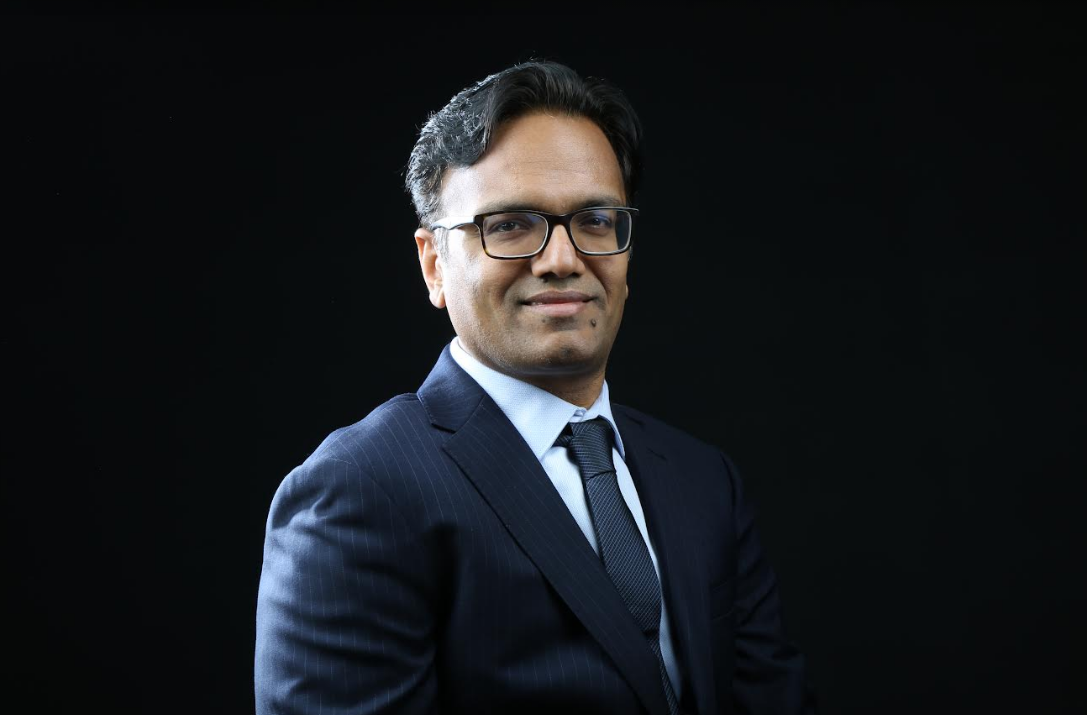- January 5, 2024
Our quality standards are an industry benchmark: Herbalife VP, Finance and Operations Uday Prakash

CFO India interviewed Herbalife Vice President – Finance and Operations Uday Prakash to understand more about his company’s business strategies.
After its successful association with the Indian Premier League (IPL) earlier in 2023, Herbalife signed up as the digital streaming associate sponsor for the ICC Men’s Cricket World Cup 2023 in October. The multinational health and wellness company made headlines after teaming up with Disney+ Hotstar, the tournament’s official digital streaming partner.
To understand more about Herbalife’s business model and strategies, we sat down with Mr Uday Prakash, Herbalife’s Vice President – Finance and Operations, for a chat.
Q. Herbalife operates within diverse global markets. How do you customize financial strategies to accommodate various economic conditions, regulatory environments and consumer behaviour? Can you provide an example of where you have effectively adapted your company’s financial approach to address any of these challenges in a specific market?
Uday: Let me address the first part of your question. The regulatory environment in our industry is quite complex and ever-evolving. We first study the customers’ buying behavior and this helps us successfully understand the localization of our products.
When we talk about the localisation of products, we leverage the advanced science that is there with us. We get a very strong understanding of what is acceptable in India. Hence, we look into the kind of products that can suit the Indian palette. Our products are nutritious and delicious, which we have a very strong understanding of when it comes to consumer behavior. This is something we have consciously developed over the years.
At the same time, we have our Centre of Excellence in Bengaluru. It’s a high-end research facility where our experts collaborate with the quality and production teams to deliver products that customers love the most. We make sure that customers get every bit of nutrition and, at the same time, love having in our products. In terms of quality, our products are made to the highest standards. We go to the extent of doing DNA fingerprinting and chemical marking of ingredients wherever the need arises. This is our commitment to quality and transparency, which aligns with the global best practices. All of our manufacturing facilities and laboratories meet or exceed good manufacturing practices, and our world-class laboratories have achieved the highest accreditation level, reflecting our strict adherence to industry-leading standards.
Q. As a finance leader, how do you strike a balance between making new investments and maintaining a particular area?
Uday: It’s always a very tough choice to make. Let me share an example with you. When we take sustainability as an area of investment, it is at the core of our business and we owe it to generations to come. We owe it to our children, our grandchildren and everyone else. Now, the real question is whether the payback may happen immediately or not. Then, one has to take a longer-term view of the payback. That’s what we believe in.
So, when an investment opportunity arises, it is not always about the return or pay back. I think, as a socially responsible organization, one has to take a judicious mix depending on the kind of investment we are looking at.
Q. Can you mention any real-life example of when you had to do this and you succeeded?
Uday: Take the example of how we implement 100% plastic recycling on a brand-neutral basis with our partners. The regulation does not require 100% plastic recycling, but we consciously decided that we are going to invest in it. Now, the question is about the payback. In this particular situation, we will reap the benefits over the years.
With the incremental investment that happens from our side, sometimes the payback is intangible because when you look at millennials, you see that they prefer companies that are conscious about the environment. Millennial customers are very conscious about the companies they want to be associated with. The example on plastic recycling I shared with you is one such example where our investment is based on a longer-term view.
Q. How has the adoption of technologies like AI contributed to improving your supply chain efficiency, or any process efficiency related to finance for that matter? Can provide any example of innovative technologies that have been integrated into your company’s financial operation or any professional anecdotes where you have led finance transformation within your organization?
Uday: Today, AI is being used in the supply chain extensively. When we talk about that, let’s take one small section of the supply chain: our product delivery. How do we ensure products get delivered to a customer in a remote PIN? There are millions of orders. Which courier partner do we use? Which warehouse do we use to ship that particular product so the customer gets it immediately? How can we cut down the lead time for the customer?
This is where AI is put to use. We are optimizing the time and resource project to find solutions for all the points I mentioned. An AI-based software application is being developed where complex algorithm calculations will recommend the best and most optimized courier partner for a particular pin code. The calculation is based on inbuilt data such as most economical, best in terms of delivery and speed, consideration of past performance data etc. The AI tool will recommend which partner to pick as the market is very fragmented & there are multiple partners, each of which may be stronger in one particular area.
Our AI tool will be integrated with our existing PTL System used in our warehouse, which supports routing the orders to the nearest warehouse to a particular Pincode. This tool will be integrated to our customer ordering portal to give visibility to customers at the time of placing the order, tentative delivery date, and which courier partner will be delivering the order etc.
Q. What are some of the non-technology-related transformations that you have initiated in your firm or within your business module?
Uday: Our collaboration with India’s food regulator, FSSAI, is centered around promoting nutritional knowledge and ensuring the availability of safe and wholesome food for individuals across India. In line with the Eat Right Campaign, FSSAI aims to raise awareness about the importance of nutrition, good food habits, and preventive healthcare and reached out to more than 200 million people. It’s a significant commitment from our side in terms of consumer behavior. As a part of the initiative, we have conducted summits, walkathons, social media engagements, etc. We have reached large sections of society through the Eat Right India initiative. So this is something that is a significant transformation that we are making. We are impacting the community at large through this program.
Q. Given your position at the intersection of financial management and operational efficiency, could you share an example of how you have balanced these two aspects to drive growth, profitability and operational excellence in your company?
Uday: First thing first, we always work towards the success of our distributors, which is our core philosophy. We have to make it easy for them to do business with us. We are looking at how to maintain our leadership position in the weight management category and at the same time, grow the targeted nutrition category. So, we invest a lot in developing new products with enhanced claims that we can make in the market; and validated scientific claims that we make for the product. That’s where we invest to get new products into the market.
Let me share an example with you. To strengthen our product portfolio, we continue to work on global products adapted for the Indian population. At the same time, we are also leveraging the traditional science in India, like Ayurveda, through our Vritilife range. Now, in the constantly changing environment, we look at how we can monitor the efficiencies of the various processes. We look at various internal metrics to monitor those efficiencies, reflecting both the speed and effectiveness of the supply chain operations.
For example, there is an ingredient called Bacopa that our suppliers export to our manufacturing facilities worldwide to use in the global manufacturing formulation. So, time and again, we look for opportunities to upgrade the local supplies to global standards and, in the end, be efficient. These typically are multi-year projects that we consciously work on.

Shreya Biswas
Shreya Biswas is an editor and multimedia journalist. Previously a financial reporter, she is currently Senior Editor at CFO Collective, where she leverages her expertise in business journalism and effective communication.
